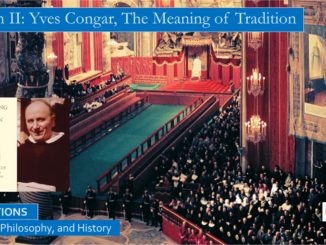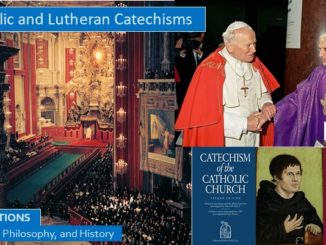
Yves Congar, Meaning of Tradition, Blog 2
By abandoning diatribes, by abandoning the proclaiming of anathemas against those who disagree with Catholic doctrine, the post-Vatican II Catholic Church now explicitly believes that both Catholics and Protestants can both attain Salvation through the grace of God and His Son Jesus Christ. By opening a dialogue, the Church teaches we can learn from both Catholic and Protestant theologies, and this also infers that this encourages study, effort, and dedication. In the spirit of Vatican II, we should strive to view these as differences of emphasis rather than as differences that divide. […]

